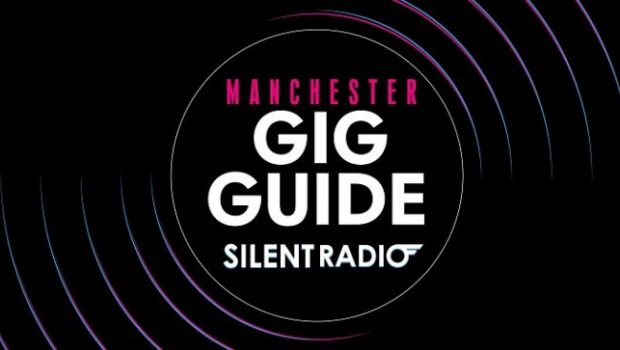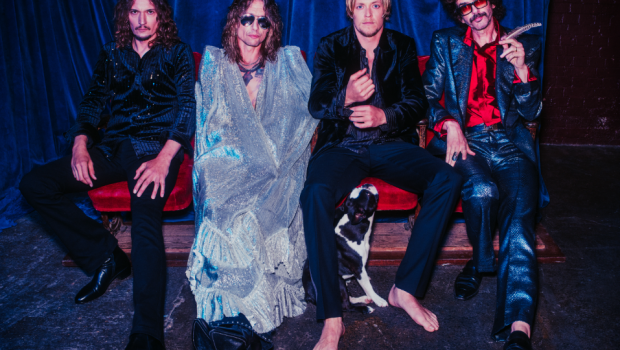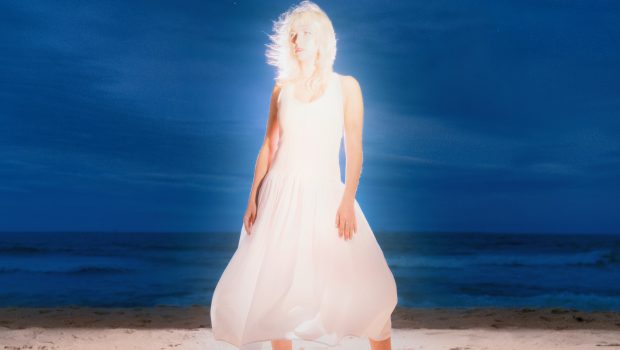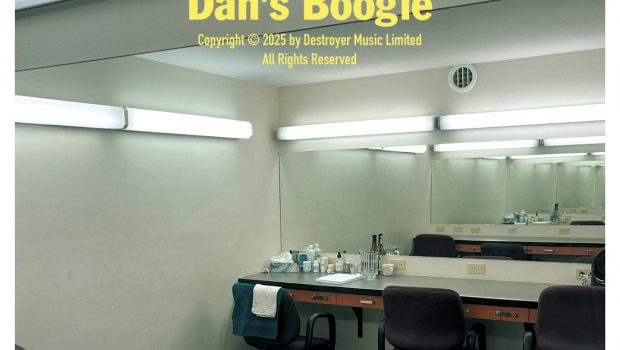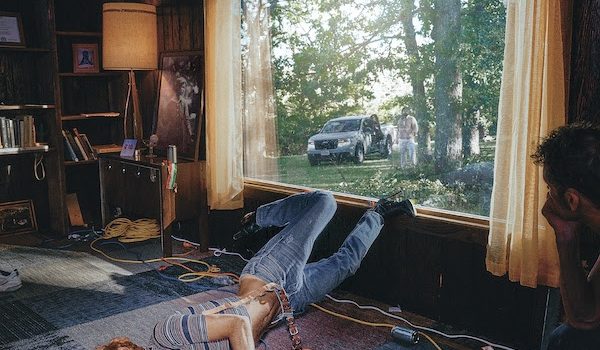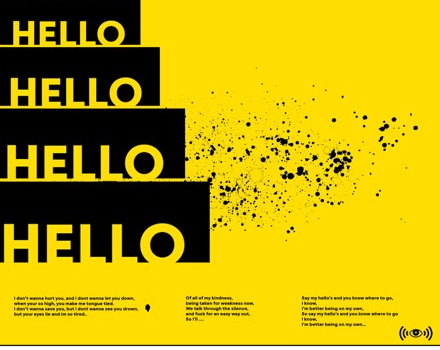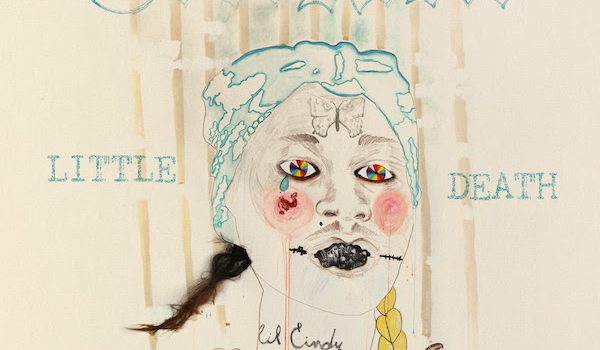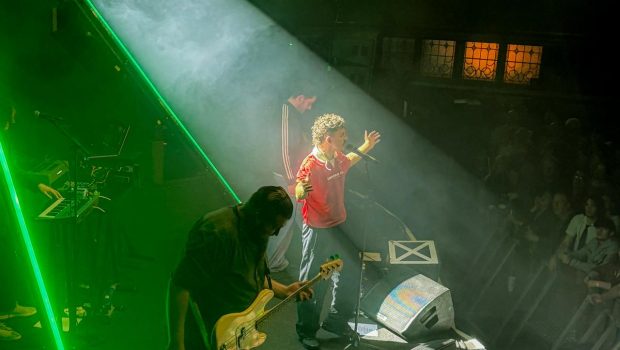 Since 2005, Field Music have released a string of consistently pleasing records via Memphis Industries, virtually developing a template for sustaining creativity over a lengthy period while gaining sufficient sales to dent the album charts. In addition, David Brewis has recorded three albums under the guise of School of Language but this month sees the release of the first album, ‘The Soft Struggles‘, under his own name. It is the second release on his Daylight Saving Records following ‘Thy Socialite!’ by Slug (the band led by former Field Music member, Ian Black) in January 2023. David kindly answered my questions concerning ‘The Soft Struggles’, the label and Field Music.
Since 2005, Field Music have released a string of consistently pleasing records via Memphis Industries, virtually developing a template for sustaining creativity over a lengthy period while gaining sufficient sales to dent the album charts. In addition, David Brewis has recorded three albums under the guise of School of Language but this month sees the release of the first album, ‘The Soft Struggles‘, under his own name. It is the second release on his Daylight Saving Records following ‘Thy Socialite!’ by Slug (the band led by former Field Music member, Ian Black) in January 2023. David kindly answered my questions concerning ‘The Soft Struggles’, the label and Field Music.
Was there a specific planned release that was the catalyst for forming Daylight Saving Records?
No, it was more the lack of a release which gave us the impetus to start the label. We knew we wanted to give ourselves a bit of time before making another Field Music record – a Field Music record comes with certain expectations around how much we have to put into promotion. We both have lots of musical ideas we want to try out and we wanted to be able to do smaller-scale releases with less of a promotional burden so bundling those into our own label seemed like the best way to do it.
What makes a record released under The School of Language or David Brewis name different from a Field Music album?
In Field Music it feels like we’re aiming for a synthesis of everything we’re interested in at any one time. With each record we add a few more ingredients to the pot and some flavours drift into the background. But when either of us just want to focus on one thing, on one particular palette, that’s when the solo projects and extra-curricular activities come into their own. The Soft Struggles does indeed have a very particular focus and very particular palette.
The label has started with a bang, two releases within a month with your album and Slug’s. Do you anticipate putting out records on a regular basis?
I can see us releasing three or four records a year to start with. In a year where we also make a “normal” Field Music record we might do less and in a year where there’s no straight Field Music release we might do more. We’re not really ready to release records from outside our immediate circle at the moment – it’s one thing to risk our own finances and reputation but it’d be another thing entirely to do that to someone else.
What was the inspiration for the name Daylight Saving Records?
It came from a song on Open Here. That song was kind-of about not having the time to do things so it seemed appropriate.
Do you still have a working relationship with Memphis Industries and have they been able to help with the likes of distribution?
We wouldn’t have done it at all if Memphis Industries hadn’t thought it was a sensible idea. They’re still acting as our distributors so it feels very much like a partnership – just one where the responsibilities are ever so slightly shifted. We’ve tried for a long time to be as low maintenance as possible for the Memphis team. Hopefully this is just an extension of that.
Has ‘The Soft Struggles’ turned out as you originally envisaged? (I remember you mentioning on Twitter last year that you had bought a double bass but wasn’t sure whether that was the starting point for the album or if you felt that would help songs you had already composed.)
The idea to do a predominantly acoustic, songwriting-over-recording type record has been hanging around in my brain for quite a long time and it started to solidify two or three years ago. Did it turn out as I’d hoped? Yeah, pretty much, but I wanted the sound to come from the musicians without me badgering everyone about exactly how to play it so part of the deal is that it’s open to what they bring. That was the Bob Dylan approach or the Miles Davis approach. You ask the right players and let them do their thing. If it doesn’t work, you shelve it and move on. Thankfully this worked.
I notice that the influences you cited for ‘The Soft Struggles’ are albums that were made before you were born (Colin Blunstone’s ‘One Year’ and Van Morrison’s ‘Astral Weeks’). Was this music you grew up with or came to later in life? (I ask as someone who grew up hearing Colin Blunstone being played at home and having been led back to his solo recordings via The Zombies’ ‘Odessey and Oracle’. I’m interested in how tastes change and particular music will resonate at a specific stage of your life).
I’ll be honest, most of my favourite records were made before I was born! One Year was something I borrowed from Sunderland Record Library before I was familiar with The Zombies, but probably around the same time we were obsessing over the arrangements on The Left Banke’s records. That would be around the turn of the millennium, long before we made the first Field Music album. Astral Weeks is one that I knew was a classic so bought for a few quid in an HMV sale, probably at a similar time. That one didn’t make sense to me straight away but over time it’s come to be one of my favourite records. Our parents exposed us to plenty of music but nothing particularly niche. Like a lot of music-obsessed teens we went through a deep and chaotic voyage of musical discovery, partly driven by our friends, partly driven by reading music magazines and massively by making connections between things we liked. I wouldn’t class myself as a really big Jeff Buckley fan, for instance, but the fact that he covered Big Star and Van Morrison and Gabriel-era Genesis and recorded with Tom Verlaine definitely gave us a few cues to explore.
Although I realise you originally wrote ‘When We First Meet’ for yourself but set it in too high a key to sing, has getting Eve Cole in to perform it given you any ideas about writing songs for other performers?
I would love to write for other singers but my writing is too peculiar to be commercial, so I don’t think I’ll ever have people banging on my door asking me to write for them. When I’m on a roll, I write a lot and I quite enjoy writing to a brief so I’m sure it’s something I could do and enjoy. But there are so many musicians trying to get into that game – I’m not competitive enough, nor am I good enough at self-promotion, to do it. Hilariously, this album partly came about because of me day-dreaming about writing and producing for Colin Blunstone and then realising it was never going to happen, so I’d better just do it myself. Ha!
I read that ‘The Last Day’ evolved from a project working with young people who were approaching their school-leaving exams. Can you tell me a bit about that project and how it fed into the song?
The project was me and Peter working with a brilliant Tyneside-based poet called Paul Summers, getting young people to write about their environment, or the environment they were currently separated from, seeing as most of the project took place during one of the lockdowns. One of the recurring themes was the end of school, simply because of the ages of the young people involved. Me and Peter kept writing lots of little snippets to show how the prose ideas we were coming up with could be turned into songs and The Last Day was one of the snippets I came up with, based on my own last day at comp. I’m not sure any of the young people found any inspiration in it but I mentally filed it away as something which was worth finishing.
‘Keeping Up With Jessica’ and ‘The King of Growing Up’ were inspired by your daughter and son respectively. Do they know you have written about them and, if so, are they excited or indifferent?
They couldn’t care less! For them, it’s totally normal and not-at-all exciting that their dad writes songs.
You’ve announced three tour dates where will you be accompanied by an orchestra. What can audiences expect? As the songs from ‘The Soft Struggles’ would make a short (but very enjoyable) set, will you be including extended versions, unreleased material, cover versions or any Field Music songs?
I have a few plans of how to extend the set. It’ll include some combination of songs from elsewhere in the Field Music universe, covers and other ways to showcase the ensemble. It’s slightly tricky because there are so few Field Music songs built around chord progressions, which is the bread and butter of The Soft Struggles material, and the style of this group is for the drums to be in a supporting role, which is also a bit of a rarity in the Field Music back catalogue. Rest assured though, the set will be of an acceptable length!
Will there be support acts for these gigs? (I can appreciate that setting up the sound might make this difficult but over the years of attending Field Music gigs, I have seen some excellent opening acts including Stealing Sheep, Mary Epworth and Emma Pollock)
There will be a support act but we haven’t asked anyone yet. I have, however, been making a list.
Are there any plans to live stream these or any future gigs? (I watched a couple of your streamed performances in the earlier stages of the pandemic. As the carer for my vulnerable mother, I haven’t attended any gigs since February 2020 – in fact, the last gig I attended was Field Music at Manchester Dancehouse. Looking after someone who has not been able to go out for 20 years has made me much more conscious about accessibility within entertainment. It could also be a potential additional source of income for bands in tough economic times)
I would very much like to make that happen – for precisely the reason that we can’t take the show to all of the people who would like to see it – but as we’re very much a DIY operation, it ends up being one more task for me to take charge of (and pay for). I’m usually fairly overworked at gigs as it is. I also wouldn’t want to annoy the venues by potentially eating into ticket sales with a stream. The one we did from the Brudenell around the time Flat White Moon was released was really good – very, very well organised, good sound, good camera-work – I should ask them whether they still have that capacity.
Linked to this, how was the experience of going out on tour last year compared with pre-pandemic?
It’s definitely different though I think there are lots of reasons for that, some to do with the pandemic and others just to do with us. I know selling tickets has been challenging for venues and promoters. People are short of cash and are reluctant to make plans, at the same time as the touring circuit is saturated from a glut of postponed and rearranged gigs. Actually our last tour before covid hit fully was in February 2020 so we were having the same issues on that tour as we had when we toured in late 2021. But we’ve been touring in pretty much the same way since 2015. We’re ready to change things around and experiment a bit more with live performance, in the same way we experiment in the studio. The Soft Struggles shows are part of that really.
Do you feel pessimistic about the prospects of bands being able to make a livelihood from music with the lack of income from streaming and touring no longer seeming to be a way of recouping costs with so many independent venues struggling with the cost-of-living crisis?
I don’t know that touring ever functioned all that well as a money-making exercise. As with most things in the music industry, once you hit a certain level of popularity, everything pretty much works – records, touring, merch – and if you’re savvy you can sustain that for a while. I don’t include us in that, by the way. Our way of working is not a panacea for the music business – no one really wants to do what we do – rent a space, record ourselves, mix ourselves, master ourselves, do our own artwork, write our own press releases, make our own videos, drive our own van, fix our own gear etc. The music industry has only ever functioned with a few winners and tons of losers. All of the work which goes towards hyping a new artist into the public consciousness is still happening, but the margins are just smaller than they used to be and the potential to turn early success into a long career seems smaller too. The tiny returns from streaming are alarming but from my point of view, the efficiency with which streaming services push listeners towards the most popular tracks is just as disheartening. A corollary of that is young artists getting better at making music which fits in instantly with the most popular tracks of the day. It doesn’t lead to music which is interesting to me, but that’s probably more my problem than theirs! Ha!
Bands have often spoken about getting better pay and overall treatment when they have toured Europe. Do have plans to do dates abroad and, if so, has Brexit had any practical effects on those plans?
Our European touring was always done on the tightest of budgets – eased by the relative luxury of band provisions on the European touring circuit, for sure! – so the additional administrative costs post-Brexit have basically made that impossible. If we were a hyped new band and were being offered slots at a few festivals then maybe we could make it work but we’re middle-aged men making our millionth album. Novelty only lasts for so long!


